► We talk to Shell Mobility’s global sustainability manager
► Forecourts reducing their environmental impact
► Shell is targeting net zero emissions by 2050
PROMOTIONAL POST in association with

Shell has 46,000 service stations around the world, including more than 1000 in the UK. Fiona Varley, Shell Mobility’s global sustainability manager, is part of the team helping service stations reduce their environmental impact and encouraging customers to decarbonise their journeys too.
‘For Shell to meet its net zero emissions targets, we need to take steps to reduce the carbon footprint and environmental impact of our service stations,’ says Fiona. ‘It’s about electric cars, energy usage, plastics, packaging and recycling. My role is to help make our ambition a reality.’
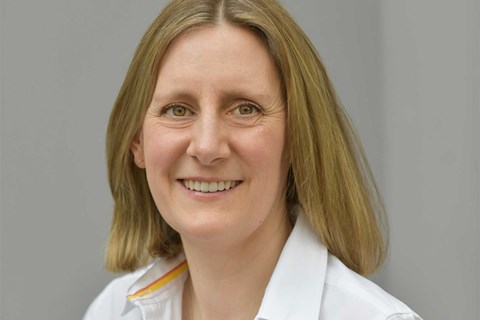
Shell is aiming to reduce its forecourts’ impact, cut emissions and drive the circular economy across the network through a number of activities. Most of them are showcased at Shell Recharge Fulham Road (pictured), the company’s first all-electric charging hub which opened in December 2021. Many of the learnings and good practices from this site are being applied elsewhere in its network.
10 minutes from a Shell charger by 2030
Shell has more than 500 charging points on its UK forecourts, including ten 175kW ultrarapid chargers at its Fulham EV hub. But that’s just the start.
‘We have big ambitions. By 2030, we aim to have 100,000 chargers in place, this will mean that 90 per cent of UK drivers will be within 10 minutes of a Shell rapid charger. 11,000 of these will be rapid chargers at convenient locations including chosen supermarket partners. It’s not just about the location, it’s also about the experience and we are always evaluating this so it’s as positive as possible for customers’ says Fiona.
Shell plans to open more EV hubs in the future as well as installing new charging points on existing forecourts and up to 800 more in as many as 100 Waitrose shops across the UK by 2025.
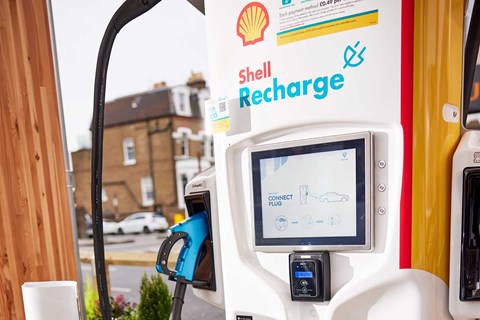
As of March 2023, Shell Recharge Solutions provides 20,000 public charging points, including over 6500 on-street chargers through its subsidiary ubitricity.
Watch the video of our 484-mile electric road trip across the UK
Solar as standard
Shell Recharge Fulham Road features solar panels in its forecourt canopy, contributing between 30-40% of the shop’s electricity needs.
‘We’re installing solar panels as standard now on service stations undergoing redevelopment, as well as any new ones we build. It will be a gradual process phasing them in over the next few years,’ says Shell’s global sustainability manager.
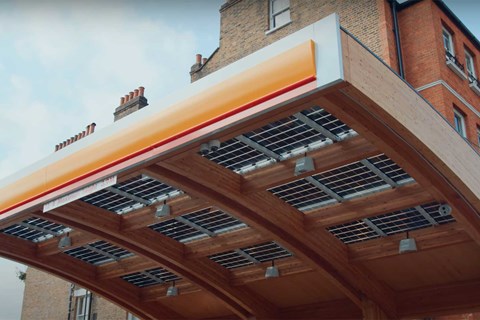
Lower carbon materials
‘We’ve also got low carbon bitumen forecourts and double glazing at some of our shops to help reduce the energy usage,’ says Fiona Varley.
Look closely and you’ll spot that the Fulham site’s canopies are made of timber, sourced from sustainable forests, bonded together. The twin structures were prefabricated before being transported to the site, a more energy efficient process than welding steel overhead. While this is only on one site, many of the innovations will be incorporated into Shell’s future network.
Powered by renewable energy
Unsurprisingly, Shell Recharge Fulham’s solar panels can’t provide the massive power output needed to supply ten 175kW chargers. However, all electricity used by the site including for the chargers, is 100% certified renewable because it’s backed by Renewable Energy Guarantees of Origin. That means every watt Shell purchases is matched with the equivalent amount of units from entirely renewable sources in the UK. This is also the case for all Shell Recharge locations in the UK.
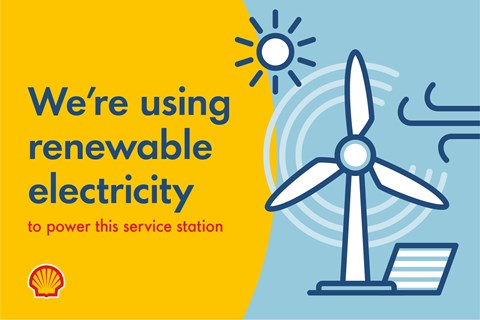
Minimise waste to landfill
You won’t find any single use plastic coffee stirrers, straws or carrier bags on Shell’s company owned UK forecourts. Additionally, Shell is looking to change its packaging to be recyclable and contain recycled materials where possible.
These service stations segregate waste such as cardboard and plastic to be recycled, and work with waste management companies to achieve zero waste to landfill.
Helping customers recycle
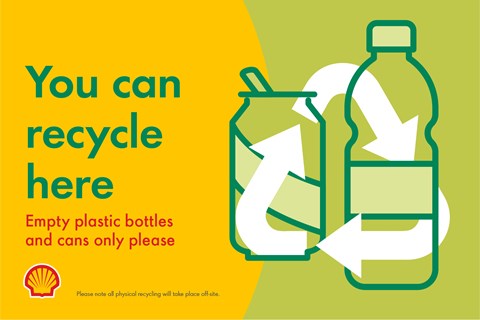
All of Shell UK’s company-owned forecourts have recycling bins, giving customers the opportunity to recycle their plastic bottles and drinks cans on the go. Some Shell service stations offer water fountains to refill bottles and help reduce waste. The company is ramping up its forecourt signage to help customers understand the steps Shell is taking to make a difference and encouraging customers to go on the journey with them.
Reduce food waste
Fancy buying tonight’s dinner at a reduced price because the food is nearing its shelf life? At many of Shell’s forecourts you can, thanks to its participation in the Too Good To Go scheme. ‘We’ve joined the partnership to try to reduce the amount of food going to waste,’ says Shell’s sustainability expert.
Customers can check their app to see what’s available nearby, collecting it in ‘Magic Bags’. The scheme is running at more than 90 Shell service stations, and in 2022 this partnership saved 85,000 meals.
Efficient equipment run by efficient staff
Shell’s first EV only hub – Shell Recharge Fulham Road – has an intelligent energy management system that monitors and controls the consumption of lights, fridges, heating and air-conditioning, reducing it by about 6 per cent.

And those banks of chillers keeping food and drink fresh are claimed to be 50 per cent more energy efficient than the previous refrigerators. Each forecourt’s service champions (wearing recyclable polo shirts) are encouraged to turn the lights off, and make sure the hot food cabinets aren’t running unnecessarily.
‘The small things we do can add up to make quite a big difference,’ says Fiona Varley.
What’s next from Shell?
Shell continues to focus on minimising the impact on environment from its operations, to use resources and materials efficiently and to drive the circular economy.
Reducing emissions at Shell forecourts is part of a bigger picture to reduce carbon emissions. Shell UK plans to invest £20-25 billion in the UK energy system over the next decade, subject to a stable policy framework and board approval.
More than 75 per cent of this is intended to include offshore wind farms, hydrogen, carbon capture utilisation and storage – and electric mobility. These investments, aim to propel the UK closer to net zero and help to ensure security of supply whilst intending to stimulate economic growth and jobs.